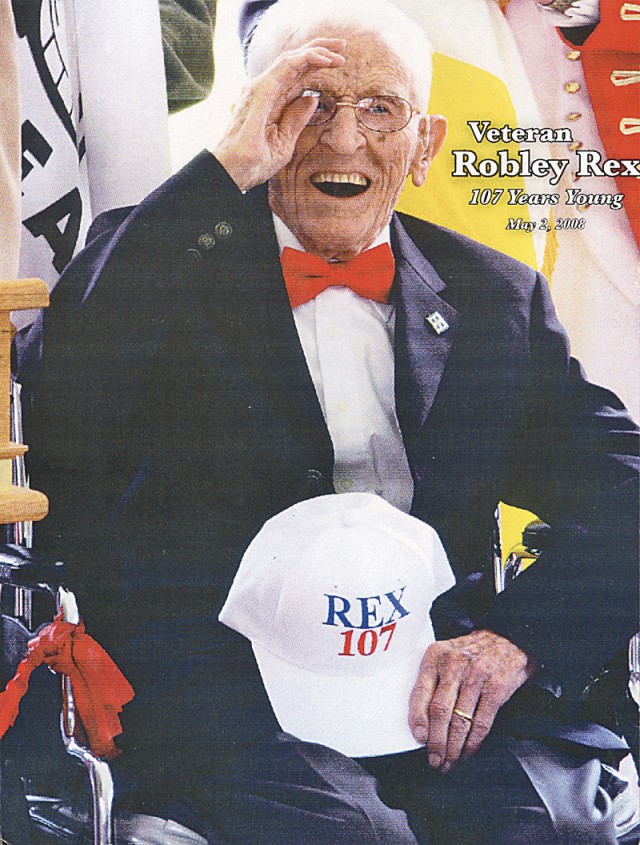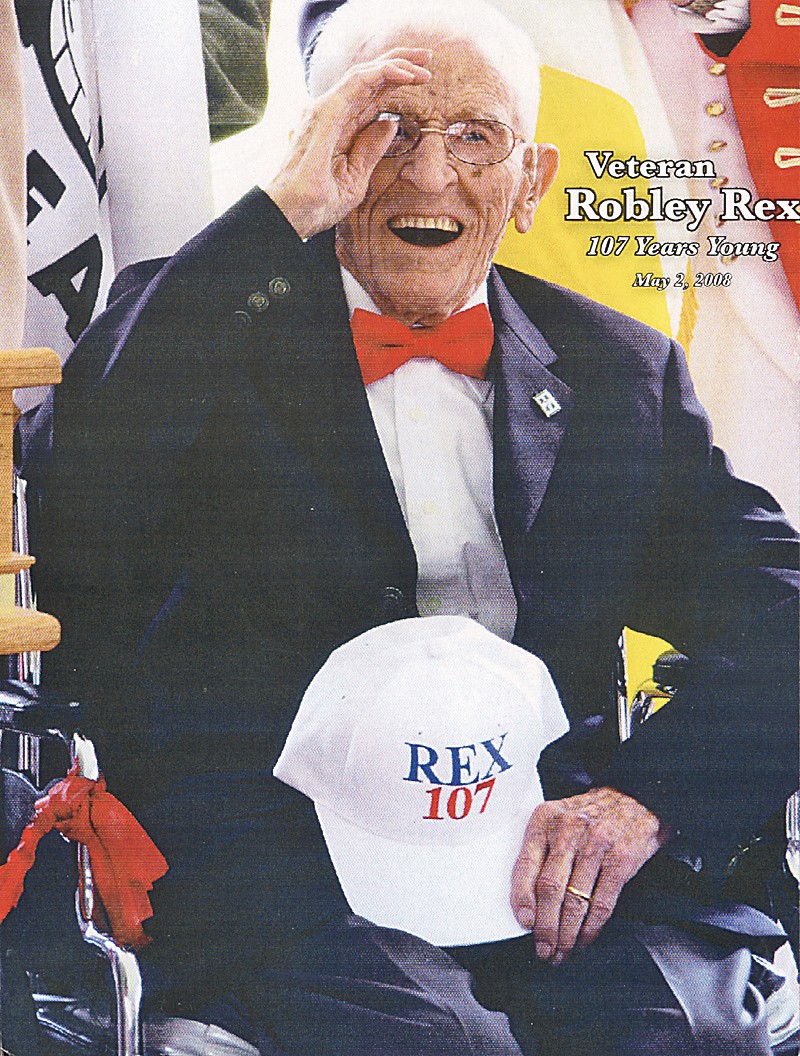FORT KNOX, Ky. (Army News Service, Feb. 18, 2009) -- A 107-year-old veteran of the World War I era remembers dates, places, and names better than many who are half a century younger.
Robley Rex was born in 1901 in Christian County, Ky., and now lives in a health center in eastern Louisville. He enlisted in the Army in 1918 at what was then Camp Taylor, located in what is now the Poplar Level Road area of Louisville.
Rex was on the front lines in France at the close of World War I. The armistice was signed Nov. 18, 1918 and he arrived on the scene Dec. 1, so the powers-that-be do not consider him a World War I vet. But the troops in the trenches had not yet learned about the armistice, Rex said, so the bullets were still flying.
As a member of the occupation forces, Rex served in France as well as Germany for the three years he was a Soldier. He was promoted to the position of administrative clerk with the "intelligence department" of the 3rd Army. He landed the job because he had accumulated two years of high school and had some unusual skills for enlisted men in his day.
"You'd be amazed at how many couldn't even read and write," Rex said. "I wrote love letters for a buddy of mine who couldn't even spell l-o-v-e but wanted to be sure I told his sweetheart that he loved her."
Well-regarded by his superiors, Rex said his supervisor used to greet him with "Here comes the brains of this outfit."
Rex remembers his company commander well and said Capt. Robert Lorch was a classmate of Dwight Eisenhower's. The two graduated from West Point in 1915. Lorch once paid Rex a high compliment.
"He said, 'The nicest thing about Rex is you only have to ask him to do something but once,'" Rex related.
Always a hard worker, Rex worked for the U.S. Postal Service after his military enlistment was completed. He was a railroad mail clerk and retired with 31 years of service.
"The boss never gave me even one order," Rex bragged. "I always did my work without being told. And if my work was done and somebody else was still behind, we pitched in and helped him."
In fact, Rex said he would still like to be working.
Never one to sit back and rest on his laurels, Rex launched into volunteer work after retirement. He began volunteering at the Louisville Veterans Medical Center when he was in his 80s.
A comparative youngster, Rex would report for duty early to a desk where about 300 medical charts were stacked. He would have them distributed to the appropriate clinics by 8 a.m., then visit other vets and sometimes advise them on benefits. He continued volunteering until 2005, when he was 104 and confined to a wheelchair.
By then, Rex had put in 22 years and 14,000 volunteer hours at the VA center and was honored with the VA's Commander-in-Chief's medal and a lifetime achievement award. Rex said it was wonderful to work at the hospital.
"The janitor would say, 'Hi, Rex' and the hospital commander would say, 'Hi, Rex.' They all knew me," he said.
Rex described differences between the armies of World War I and today: "Nowadays, if an officer says 'we're going to do something,' some private with a Ph.D stands up and asks, 'why'' In my day, if an officer said 'we're going to do 'that,' we did 'that.' We had absolute discipline."
People like then-Capt. Eisenhower and then-Lt. George Patton, while serving in the same army in Europe, were not part of Rex's memories. According to him, they were still "nobodies," and if he met them, he didn't remember them. The most famous World War I personality Rex does recall meeting was Gen. John "Black Jack" Pershing.
"He always looked like he was going to a parade," Rex said. "He was all spit and polish; you could see your face in his boots."
Rex's wife, Grace, died in 1992 after 68 years of marriage. Rex attributes his long life to her, saying, "I married the right woman. She gave me plenty to eat and took care of me. He probably didn't know it, but God didn't need her as bad as I did."
(Maureen Rose writes for the Turret newspaper at Fort Knox, Ky.)


Social Sharing